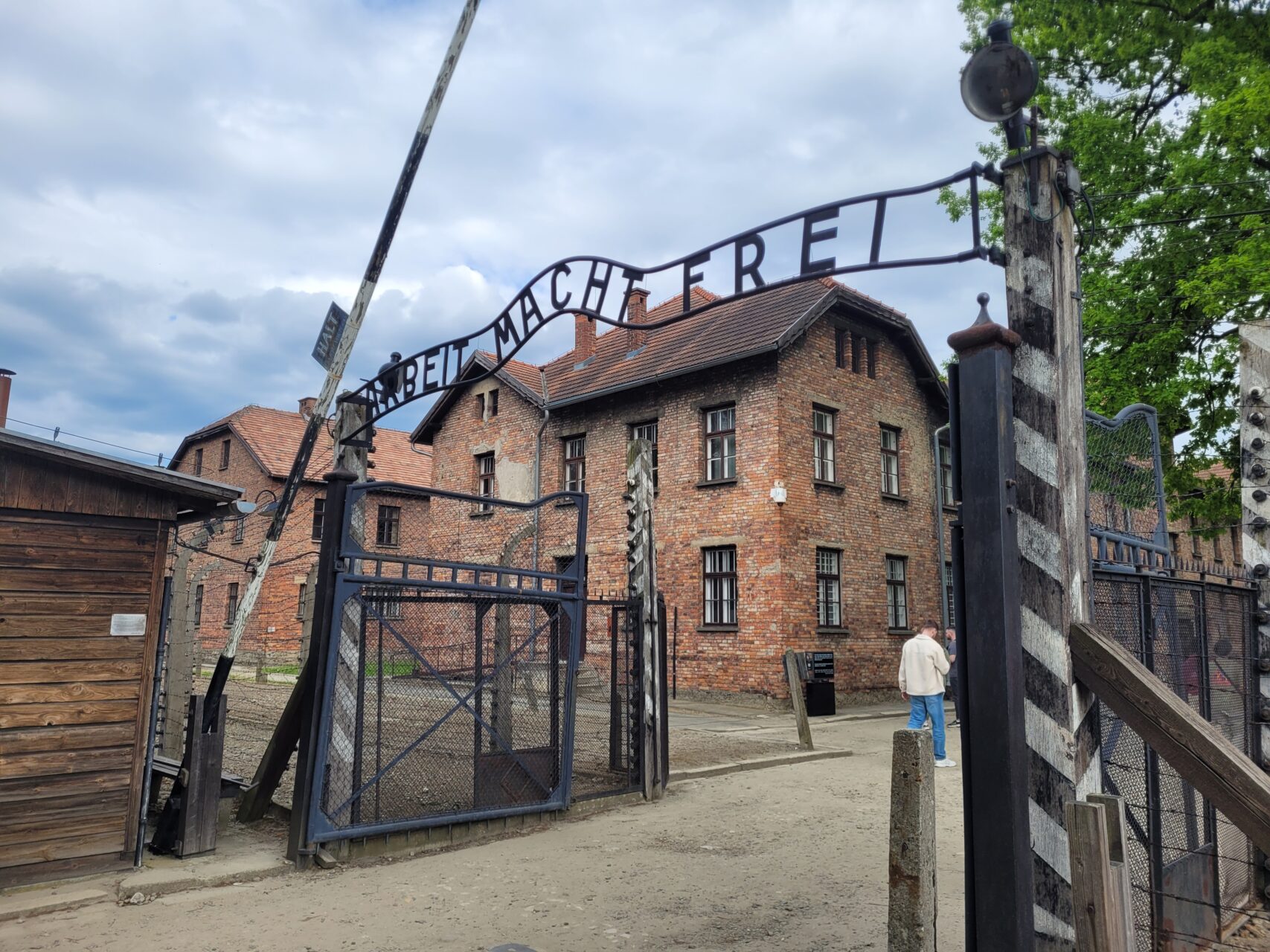BYU interns in Krakow, Poland assisted the Auschwitz-Birkenau Memorial in their preservation of the identities of those who lost their lives at Auschwitz.
The memorial is strongly dedicated to recovering and preserving the names and records of those who were murdered in the German concentration and extermination camp. This ongoing project features a database that contains the names, photographs and records of those former prisoners of Auschwitz.
“What we are trying to do is to go through any documents available and draw from those documents, any personal information,” Paweł Sawicki, from the press office at the memorial, said. “Then, thanks to putting them in a computer database we have, it is much easier for us to go through this information, to make links between different things. Thanks to this, we may be able to trace, to get to some other information.”

Only 20% of the records for the Auschwitz prisoners survived to the present day, but the memorial is determined to uncover the information still available. Volunteers and workers have found many connections between documents and former prisoners, while new discoveries await each day.
“We started project in 2019, a project that would bring us more information and documents,” Magdalena Czaja, a junior documentarist at the memorial, said. “We actually received like, thousands, hundreds and thousands of documents because of that, because of the project.”
In collaboration with the memorial, BYU sent student interns to assist in this work of conservation. These student interns helped translate and transcribe the records and put the information into the online database.
“Each record and each kind of fact that we find out about these people and then put into the database is one more person that they can help find an identity for,” BYU student intern Aaron Jolley said.
Another intern, Jalyse Ortiz, wanted to help with the project because of its importance.
“I firmly believe that documents are a strong connection to the past. You’re able to see, you know, history through a different lens … learning more about these individuals who were directly impacted has really been impactful and powerful for me,” Ortiz said.
According to Czaja, this project is not only inspiring for the student interns, but it is also very helpful for the memorial to have a few extra sets of hands working on this project.
“They actually are an amazing help to us with transcribing those documents and analyzing them and putting the information from them into the database. They are putting a lot of effort to that and we can see that … and we are very, very grateful for that,” Czaja stated.
As these interns work diligently to help find and restore the identities of those former prisoners, they are also carrying on BYU’s connection with genealogy and dedication to preserving history.
“I think that there’s something sacred about touching history … there’s something quite powerful about that experience,” BYU Russian professor Dr. Tony Brown said. “And thankfully, the Auschwitz-Birkenau museum is very committed to furthering this work. And I think BYU also has a strong, not just interest, but we value preserving life histories.”
People interested in helping the Auschwitz‑Birkenau Memorial and State Museum can donate funds to assist in keeping the memorial open.




